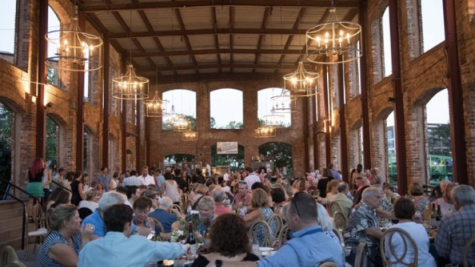Would a Reverse Mortgage Work for Relocation?

Many seniors, already own their home free and clear. The lucky ones who hopefully had a ‘burning of the mortgage’ celebration when they paid off their home. Now what? Start the process all over again if we want to relocate? The need for a higher quality of life may demand the change. Keep an open mind and don't rule out selling your home to move elsewhere, with good counsel.
As we draw closer to retirement, it is natural to become conservative and cautious, because the decisions we make at this stage in our lives are critical to our financial well being. If we make a mistake, we don't have the luxury of time to recover.
Thankfully, the stock market has recovered nicely from its free fall down to 6,500 points in March 2009. Today, the Dow Jones is almost double, in the 12,000 range. Many of our clients went to ‘cash’ in January 2009 to limit their risk during this period of uncertainty. These folks may have also lost the chance to recover when the stock market began to rise, if they did not re-enter the stock in April 2009. This unsettling time of investing during the Great Real Estate Depression, may have impacted the amount of money retirees have to rely upon, making other retirement income sources - a necessity.
Well balanced adult children, want their parents to enjoy retirement and live life to its fullest. Whether our parents leave us a boat load of money or not, is unimportant. This opens up the possibility of a higher quality of life for our parents, spending acquired assets on themselves, instead of giving them to us as an inheritance. Retirement income is possible from a reverse mortgage for folks over age 62, in addition to social security, pensions and IRA's.
Reverse mortgages known as (HECM) home equity conversion mortgages are federally insured mortgages started in 1989 by the U.S. Department of Housing and Urban Development. Reverse mortgages are not new and have been around for more than 30 years.
The National Council on Aging, U.S. Department of Housing and Urban Development and AARP has information available to help us understand the risks and benefits of a reverse mortgage. In a nut shell, with a reverse mortgage, the lender pays you either a monthly amount, a lump sum or opens a line of credit for you to use. Income we receive from a reverse mortgage is tax free. To obtain a reverse mortgage, we do not need a job or income to qualify. The loan amount is determined by the equity in your home and is for a portion of the equity in your home, not 100%.
We must be age 62 or older and live in the home as our primary residence to qualify. With an FHA reverse mortgage, we cannot be forced to vacate our home prematurely. We must continue to make timely property tax payments, required hazard insurance and maintain your home. If we fail to live in our home for more than 12 months, the reverse mortgage becomes due.
Closing costs are similar to a traditional mortgage loan and are regulated by the government. A senior may borrow up to $417,000 nationally or in some cases, up to $625,500 in high housing cost areas. Loan origination fees are limited to 2% of the first $200,000 borrowed and are 1% for any amount beyond. The more valuable your home is and the older your age, the lower your interest rate and the more you are eligible to borrow. The loan conditions are based on the youngest age of the borrower, assuming you are married. You may be disqualified for a reverse mortgage if the title of the home includes your heirs or children’s names. Closing costs you can expect to pay in addition to loan origination fees: appraisal, mortgage insurance premium, title insurance and attorney fees. Closing costs can be financed in the loan.
We can lower the cost of living by relocating to another state. We can downsize our home and pick a better floor plan. By having all our living space on one level, we avoid stairs, dangerous to us as we age. Not only will can we save money by moving to a lower cost state, we will gain better weather and improve the quality of our life. There are plenty of real estate communities with social clubs, fun lifestyle amenities and with quality medical care nearby. By purchasing a less expensive home, the extra money we receive from the sale of our home can be placed in a savings account, as additional emergency reserves.
When we purchase a new home, by paying cash, it opens up the opportunity to obtain a reverse mortgage providing us scheduled monthly income throughout our lifetime. Be sure to seek financial counsel from someone you trust.
Soon to be a golden girl, Margie Casey Founder
For more information about reverse mortgages, contact:
1) U.S. Department of Housing and Urban Development
2) National Council on Aging
3) AARP
4) National Reverse Mortgage Lenders Association
5) U.S. Department of Housing and Urban Development Counselors









